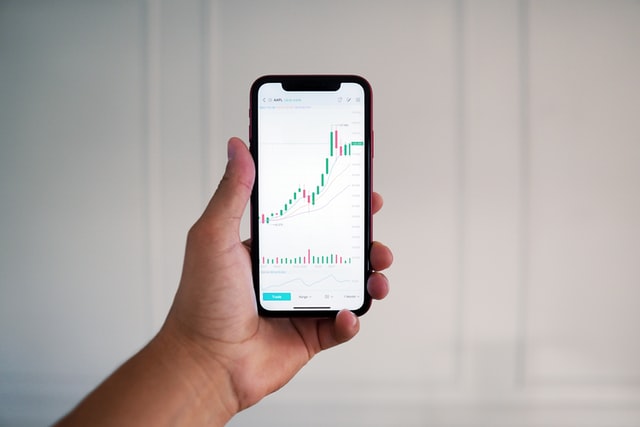What is a Convertible Note?
A convertible note is a way for seed investors to invest in a startup that isn’t ready for valuation. They start as short-term debt and are converted into equity in the issuing company. Investors loan money to the startup and are repaid with equity in the company rather than principal and interest. The convertible note is automatically changed into equity once a specific milestone has been reached, usually when the company is officially valued for later investments.
And before we continue, remember that Diligent Equity has a cap table tool that lets you model out a convertible note and manage its impact on your cap table. Get started for free here!
Why Are Convertible Notes Used?
Startups that need pre-seed or seed funding use convertible notes to raise money before offering equity funding. Since founders can buy their shares when they’re incorporated at a price specified in the articles of incorporation, turning around a few months later and selling shares at a significant markup would look suspicious.
Convertible notes are used to avoid this issue. There often isn’t enough data to form a valuation of the company in the early stages. Using the seed funding to get the company up and running provides a stronger foundation for valuation before the Series A funding round.
Benefits of Convertible Notes
Convertible notes allow startups to focus on growing their business before they have to start paying back debt. This is particularly important for tech companies that need to spend a lot of time fine-tuning their product. Convertible notes are a fast and straightforward way for startups to raise money. Issuing equity is a more complicated process, and convertible notes bypass that by using debt.
The benefits to investors are clear. Startup companies with high-growth potential offer an outsized return on their investment when everything goes well. Particularly with convertible notes with a low valuation cap and a steep discount, investors can end up with a lot of equity obtained at bargain-basement prices.
Terms of Convertible Notes
Investors are usually interested in convertible notes because they believe the company will experience a lot of growth. Ultimately, they think the equity in the startup will be worth more than the interest on the debt. Convertible notes include the loan and repayment terms as well as the following:
Interest Rate
Convertible notes are a loan, so there’s an interest rate. The difference is that convertible notes pay interest in equity rather than cash. The interest rate is the amount that will be added to the principal amount when the note is converted. Interest rates are usually low and in line with current rates as the value is primarily in the equity conversion.
Conversion Discount Rate
This is the discount rate the investor will receive on shares when the note matures. This compensates the investors for their risk in investing so early in the process. They can buy more shares with their investment than investors in later rounds of buy-in. If the discount is 20% and shares are sold for $1 per share during a later investing round, the investor’s stock will be priced at 80 cents per share.
Maturity Date
This is the date when the investor can request full repayment from the company or extend the note.
Valuation Cap
The valuation cap puts an upper limit on the price the investors will pay for their equity in the next fundraising round. Investors benefit from lower ones because it gives them a higher percentage of the company. For example, if the company is valued at 10 million dollars but the valuation cap is one million dollars, a $100,000-dollar investment would result in a 10% share of the company instead of a 1% share.
Disadvantages of Convertible Notes
While convertible notes offer many benefits, there can be significant drawbacks for both startups and investors. These include:
Failure to Secure Future Financing
There’s always the possibility that the company won’t be able to raise equity financing in future rounds. If the note matures and the company cannot get additional funding, it’s unlikely they’ll be able to repay the note. Defaulting on a convertible note can push a company into bankruptcy. However, if an investor forecloses on a company, they’re basically guaranteeing a total loss on their investment. This is a losing situation for both sides. Before investing in a convertible note, investors and startups need to have a clear idea of all paths forward, including failure.
Giving Away Shares of Equity
For companies, the most significant disadvantage to convertible notes is giving away future equity that has the potential to be far more valuable than the original loan. This is particularly true with low valuation caps. Startups could be giving away a large percentage of their equity if they have significant, unexpected growth in the very early stages.
Complications from Poorly Planned Notes
Companies with too many notes or notes that aren’t set up carefully may be putting themselves at risk later. Convertible notes are usually structured as a single agreement called the note purchasing agreement. This covers all of the financing terms. Promissory notes are then issued to individual investors with the date and amount of their investment. However, if startups issue staggered convertible notes with different terms, future negotiations may be compromised by problems with the cap table.
Time-Consuming Process
Though convertible notes are far more straightforward than Series A funding, they can still be complicated and time-consuming to negotiate. They have to be drawn up by lawyers and passed back and forth between investors, founders, and their lawyers before the terms are finalized.
When Convertible Notes Mature
Both companies and investors expect a convertible note to convert to equity when it matures. If all goes well, this will happen within a year or two. This maturity date is a big incentive to ensure that the next equity financing round happens on time. Convertible notes are high-risk investments, and investors are expecting a big reward.
Companies that are acquired before their convertible notes’ maturity date or choose not to raise any equity funding risk disappointing their early investors even if they pay back the loan. Though this rarely occurs, it’s best to have language in the convertible note that deals with this possibility. Many convertible notes include a standard 2x payout term to cover this.
In cases where the company isn’t on track to convert or repay the loan by the maturity date, there are a couple of options. Investors may be willing to extend the note, hoping that funding will be secured with more time. Investors may want to renegotiate the convertible note terms when this happens by asking for a more considerable discount or a lower cap.
What Companies Are Good Candidates for Convertible Notes?
Early-stage startups that are on track to grow quickly can benefit from seed funding in the form of convertible notes. However, it’s crucial to have a clear path toward valuation so that the conversion won’t be an issue when the company is ready for another round of funding. Convertible notes can also be an option for companies that need to raise funding between larger equity rounds.
Alternatives to Convertible Notes
A couple of investor organizations that specialize in seed funding have put together alternatives to convertible notes. Y Combinator offers SAFE notes, which are convertible notes but aren’t debt, so the issues with maturity dates and interest are eliminated. These are five-page documents that offer standard terms to streamline seed investing further. SAFE notes are considered founder-friendly since they circumvent a lot of the downsides to convertible notes for companies.
Another seed investment company, 500 Startups, created the KISS note, which has the same goal as SAFE notes. However, KISS notes offer more protections for investors, particularly in cases where the company fails. For this reason, KISS notes are regarded as more investor-friendly.
In Conclusion
Convertible notes can be an excellent option for the right company and the right investor. The high-risk, high-reward model can offer a way for startups to obtain seed funding before they have the resources to get to Series A funding. However, having a clear plan for all eventualities is imperative for both sides to benefit from the arrangement.
Companies that aren’t comfortable giving away so much equity can explore other options. It’s never wise to issue convertible notes without exploring all of your options. Other possible funding sources include SBA loans, SAFE notes, KISS notes, grants, bank loans, or lines of credit. Before deciding which is the best fit for your company, run through the possibilities and how they can play out positively or negatively in different scenarios. Securing the right funding is vital to the success of any startup.
Once companies are ready for Series A funding, they’ll need a valuation. Diligent Equity’s portfolio management software can greatly simplify the process of managing cap tables. We provide an intuitive platform for equity management that lets you handle your option administration and capitalization table. We help you understand how new term sheets can impact the future of your business so that you can make smarter decisions.



